The world has changed and technology has contributed greatly to that. The impact has been felt in all aspects of life; from how we grow our food to how we travel and communicate. Every industry now is dependent on technology for its daily operations and the incessant demand for growth. Technology and the changing world has been a subject of in depth research for decades, and the controversy it brings makes it one of those topics that will never cease to be debated across platforms and institutions.
We can pick any industry and follow the development various technologies have brought about – good and bad. Because there are always two sides of the coin, we can never just accept that in the name of progress all technology and the changes it brings are good.
The world is bound to change that we all know for certain. Change is innate to life and human beings. We change daily, move from one point in space and time to another constantly; and same applies to all systems that surround us – in nature and society. In nature however, most systems go through cycles, where each cycle begins at certain state and ends in another. And this repeats over time. Whether that is seasonal changes or planetary cycles, the repetition has been documented over and over again. Scientific research and empirical data have recorded changes on our planet from thousands of years ago. In society, similar changes have been put on paper since paper and ink were invented. The thing with humans and human systems is that we never cease to want to go further in our development as if all progress means the old systems are bad and must be relinquished. And this mindset inevitably generates the belief that we can and we must penetrate and dominate nature with its states and cycles – whether that is on purpose by strategy and plan or by accident.
Creation and separation
Technology is meant to improve human lives, in general. Improving the mobility of humans was the first great technological achievement. From relying only on their two feet, horses and carriages, as well as a tow-barges service in Belgium in 1618, humans moved to the steam engine and then to automobiles. This was one of the first great inventions. The train caused a revolution, with its speed and capacity the mobility of humans was taken to another level although the first railway lines were industrial.
The first line in the world connected the towns of Stockton and Darlington in England, in 1825, and was used to transport coal. Some industrial railway lines were constructed in France as well. A regular service for passengers appeared in 1830. Exclusively for steam locomotives double track was laid that year between Manchester and Liverpool. With the independence of Belgium in October 1830, and the push from a number of capitalists, the idea or a railway in Belgium became an important element in the development of the new kingdom. It took some time and patriotic debates in parliament until a majority vote passed in favor of the railway. Members of the parliament feared that the coming of the railway will disrupt daily life leaving some people behind without a job; it did happen in France.
Declaration by some of the people’s representatives stated that milk transported by railway will arrive as buttermilk, to which a colleague responded, “The eggs will arrive as omelets!”
This has remained the case to this day, when it comes to new technology, weather we are talking about mobility or milk. Each new creation brings separation in the human societies and systems. Just like a coin has two sides, and a banknote too, since the dawn of civilization, as prophetic as it might sound, creation has brought about separation. Will moving from banknotes and metal coins to digital money change that since they won’t be two sides anymore just online digits? Will electric cars and hydrogen powered engines make people forget petrol engines? Will artificial intelligence become a substitute for human intelligence? We are about to see that and very soon probably. To be continued in various sub-categories.



